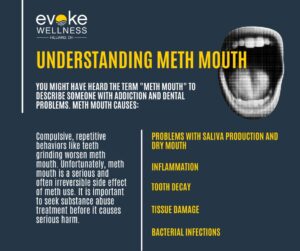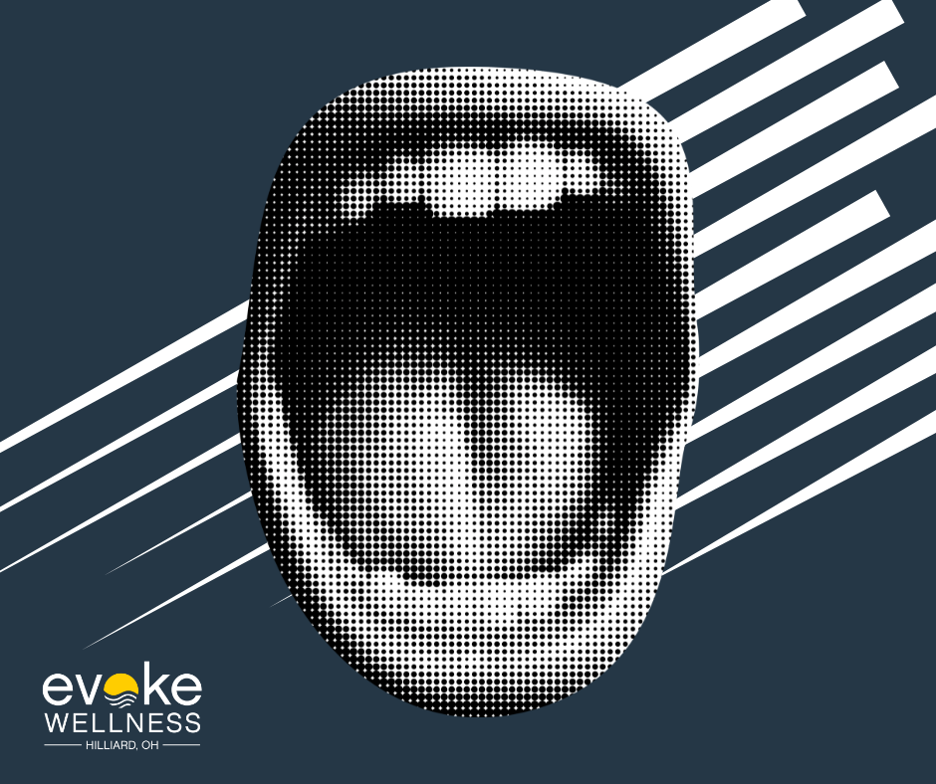Drugs come in all shapes, sizes, forms, and classes. Illicit and legal drugs can sometimes be part of the same class. The amphetamine class contains both prescription and illicit drugs. Knowing what amphetamines are and how they work can help you recognize the signs of addiction.
Evoke Wellness in Ohio offers a methamphetamine rehab program at our Hillard, OH, facility. Compassionate, evidence-based care is just a call away. Reach us at 866.430.9267 now.
Amphetamines: A Drug Class
Amphetamines are stimulants. They excite the central nervous system, increasing alertness and energy. This makes them appealing to those looking for a boost in productivity or recreational use. The drugs come in various forms including tablets, capsules, and powder.
Prescription Amphetamines
Medications containing amphetamines are often used to treat ADHD or insomnia. Because of their stimulating effects, they help stave off sleepiness and can help individuals with ADHD stay on track by alerting the focus center in the brain.
Illicit Amphetamines
The most well-known illicit amphetamine is meth. Methamphetamine can actually be used by prescription in extremely limited cases but is most often distributed illegally. It is produced in illegal labs and can be smoked, snorted, or injected.
Misusing amphetamines can lead to dangerous side effects, such as high blood pressure, heart attacks, seizures, and even death.
Signs of Amphetamine Addiction
Amphetamines are highly addictive. College students and other young people often turn to prescription amphetamines like Adderall to help them study for long hours or even to improve their video gaming performance. Meth is a popular party and street drug, causing intense euphoria and alertness.
Addiction does not discriminate; anyone can be affected. Some common signs of amphetamine addiction include:
- Changes in behavior or mood
- Lying or secretive behavior
- Financial problems
- Neglecting responsibilities and relationships
- Legal troubles
Understanding Meth Mouth
You might have heard the term “meth mouth” to describe someone with addiction and dental problems. Meth mouth causes:
- Problems with saliva production and dry mouth
- Inflammation
- Tooth decay
- Tissue damage
- Bacterial infections
Compulsive, repetitive behaviors like teeth grinding worsen meth mouth. Unfortunately, meth mouth is a serious and often irreversible side effect of meth use. It is important to seek substance abuse treatment before it causes serious harm.

Amphetamine Addiction Has Consequences
Meth mouth isn’t the only consequence of meth or amphetamine addiction. Other physical, psychological, and social consequences of amphetamine addiction include:
- Heart problems
- Weight loss and malnutrition
- Insomnia and sleep disturbances
- Paranoia and hallucinations
- Financial struggles/employment difficulties
Meth rehab can help those who use methamphetamine. Prescription drug addiction treatment can help individuals overcome Adderall abuse. However, dual diagnosis support might be the best option since amphetamine abuse often stems from and causes co-occurring mental health issues. Integrated treatment that addresses both substance abuse and mental health can lead to the best outcomes for those struggling with amphetamine addiction.
Finding Addiction Rehab
If you or someone you know is struggling with addiction, seeking help is the first step towards recovery. There are different types of treatment available for those dealing with substance abuse, including:
You can also find addiction treatment that connects you with others like you. Veterans rehab programs and LGBTQ+-friendly rehab centers are available for those who need specialized care.
Start Treatment at Evoke Wellness in Ohio
We offer comprehensive addiction treatment for those struggling with amphetamine abuse. Our team of licensed professionals provides personalized care to help individuals overcome their addictions and achieve lasting recovery. We understand that every individual’s journey to recovery is unique, and we tailor our treatment plans accordingly. Contact us today to get help.
Call 866.430.9267 or contact us online to get started.



